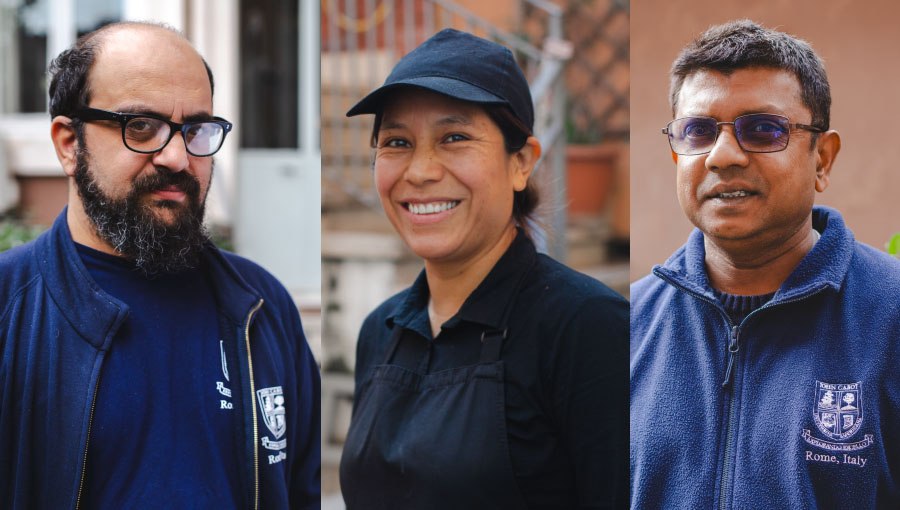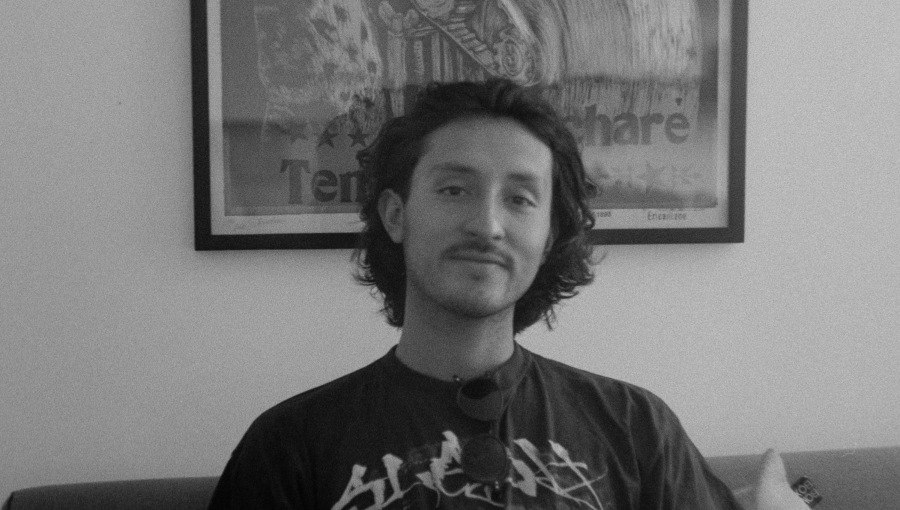Throwing Assumptions out of the Window: Professor Gene Ogle
Assistant Professor of History Gene Ogle, who is from Texas, has been teaching at John Cabot University since 2002. His research and teaching interests include colonization and transcultural relations in the early modern Atlantic World, slavery, racism, and the long term history of globalization. He is currently working on a book on race, violence, and honor in the eighteenth-century French colony of Saint Domingue (present-day Haiti).
What brought you to Italy and to John Cabot?
In terms of ending up in Italy, I suppose either luck or fate, depending on one’s point of view—while I was in Philadelphia pursuing my PhD, through a series of fairly random events I met and got to know my partner (who is from Rome) and we ultimately decided to raise our family here. Ending up at John Cabot was more deliberate. Beyond looking for a job in Italy that would allow me to do what I was trained for and wanted to do, I was very attracted by JCU’s mission as an international, multicultural liberal arts college. As a historian, I’m particularly interested in global history and cross-cultural interactions, and I firmly believe that the most important responsibility universities have today is to help students become leaders and citizens capable of grappling with the challenges presented by what in many ways is an increasingly complex and diverse world. In short, JCU was a good fit for me.
With so many liberal arts colleges in the US, why should one choose JCU?
Quite simply, its true cultural diversity. To a much greater degree than anywhere else I’ve taught or studied, students here come from a wide range of cultural and educational backgrounds. This diversity challenges us all, both students and professors, to rethink our basic assumptions, to be more creative in how we think about the problems we’re addressing, and as such to explore ideas and solutions that we otherwise never would have come to.
As an example, I fairly regularly teach a course that studies the American, French, Haitian, and Latin American Revolutions. As a teacher, you often go into a classroom with a set of pre-conceived notions about what students will assume about the topics you’re discussing, and you prepare yourself to build on (or work against) those. When I taught this particular course here the first time, I assumed the students would have a range of preconceptions regarding the American and French Revolutions similar to those I had witnessed in the U.S. From the first day of that class, the broader and unexpected range of views that came out in discussion forced me to throw those assumptions out the window. The resulting semester broadened my horizons in terms of the subject matter, and if that can be the case for a ‘seasoned’ professional, I can’t help but think this can have even greater impact on a student’s experience.
Why is the advantage of majoring in History, today?
First, studying the past provides perspective. Beyond helping us to understand how our world came to be, exploring particular historical developments can both remind us that our world is not the only one that is possible (humans like us have lived and thought in different ways than we do) and provide us with examples through which we can think more fully, deeply, constructively (and possibly more objectively) about contemporary issues.
Second, historical study develops habits of mind, research and analytical skills, and writing abilities that can prepare you for a wide range of professional activities ranging from law to consulting to public service and beyond.
What is your teaching philosophy?
In a few words, as Aristotle effectively claimed, “Learning is…pain.”
(Sort of) joking aside, I do believe that we only really learn by actively working towards it—by reading, reflecting seriously upon what we read, hear and discuss, and expressing our ideas in writing and conversation. As a result, as a teacher I tend to see myself as more of a guide, or perhaps better, a coach, than someone who’s there to provide information or answers. On one hand, this means that most of my class sessions involve collective explorations and discussions of readings and other materials with a high level of openness to what students bring into the classroom. On the other, it also means that I feel that my duty is to push students to think about such materials in more complex manners and to express and support their views ever more effectively.
Tell us about your scholarly work.
Most of my scholarly work focuses on questions related to race, slavery, colonialism, and the Enlightenment in the Atlantic World from the 17th through the 19th century, and more particularly in France and the French-speaking Caribbean.
I’m interested in a fairly wide range of issues, but if there is any one essential question or problem that I seek to understand better, it is the process by which ‘racism,’ in the range of ways that we think about it today, came into existence. Many answers to that question tend to focus on its intellectual history, that is, the development and spread of beliefs that humans are divided into biologically different races and that some of those are ‘superior’ to others, in other words what’s often called ‘scientific racism.’ In my work, instead, I’m trying to better understand how what are ultimately meaningless physical differences such as skin color, hair texture, etc., took (and take) on social and cultural meanings as well as how those meanings were (and are) then internalized so that they end up working at the level of individual psychology and perception.
In my on-going work on the specific case of the Old Regime colony of Saint Domingue (present-day Haiti), I suggest that this process occurred as early modern French men and women adapted their ways of thinking about, enacting, and negotiating social hierarchies that divided people into nobles and commoners to a Caribbean society in which enslaved people of African birth or ancestry made up the greatest part of the population. In both France and Saint Domingue, cultural understandings of honor and shame were central to these ways of understanding and living hierarchies. In the Caribbean, however, the longer term effect was to imbue physical differences such as skin color with honor-bound meanings. As the cultural idiom of honor is one that creates strong ties between social relations and individual sense of self, these developments also had the effect of internalizing ‘race’ as something felt and lived in a visceral and often highly emotional manner.
On as side note, for me this work provides a good example of what I said earlier about historical studies providing perspective. In many ways, my working on these topics is rooted in the fact that I grew up in an only partially desegregated small town in East Texas in the 1970s and 1980s. I think historical study of another time and place has given me the intellectual space and emotional distance to try to understand better how the kinds of racism that I grew up with worked, where simply thinking about personal experiences rarely gets me much further than something along the lines of “‘expletive’ racists.”
Please name one challenge you faced in your career and how you were able to overcome it.
Probably the toughest one was finishing my Ph.D. dissertation. Not only am I a bit of a perfectionist, but I was also teaching a lot at the time to make ends meet, and at that moment in my life I was full of doubts as to just whether it was all worth it or not. In the end, I very happily made it over those hurdles and decided simply to force myself to finish thanks to the support of family, colleagues, and the professors I worked with in graduate school. My dissertation advisor repeatedly reminded me that in the end there are only two kinds of dissertations, ‘finished’ and ‘unfinished,’ and that everything else is just a shade of difference. It’s advice I continue to give to my students working on theses and research papers.






